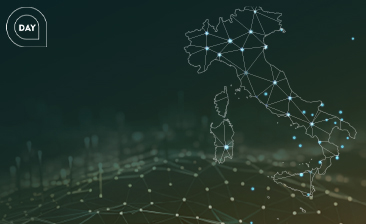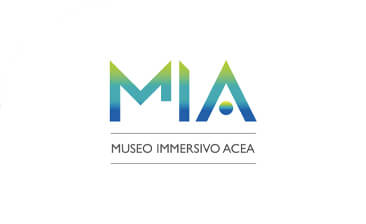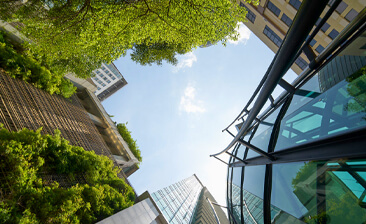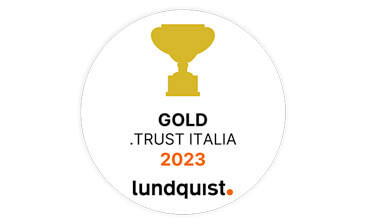Rome is, today one of the few metropoles in the world, that can boast a water resource of excellent quality right from its source.
The governance of this area is overseen by the Board of Directors through the company’s Top Management and the activity of the Committees, thanks to the Risk Management and Control System, which is implemented with the full involvement of the Group’s managers and integrates into its risk/opportunity analyses also the risks arising from climate change and other sustainability issues.
The most important objectives we set ourselves are the following:
For many years, we have taken part in the CDP questionnaire, monitoring and publishing information on our emissions and the initiatives taken to reduce them. In June 2022, downstream of a project completed in 2021 aimed at identifying, selecting and investigating the most significant climate risks for the main Group companies, the first Acea Group 2021 climate-related disclosure was published in accordance with the recommendations of the Task Force on Climate-related Financial Disclosure. This activity led us to carry out our first climate scenario analyses - involving the Group’s main companies - and allowed us to develop our knowledge of the different aspects associated with climate change and refine our ability to manage risks (both physical and transition) and related opportunities. We therefore decided to continue the project, expanding the analysis perimeter and involving a greater number of Group companies in identifying the related physical and transition risks, and some key functions of the Parent during the phase of prioritising the risks identified, in 2023 publishing the Acea Group 2022 Climate-related disclosure.
Carbon Disclosure Project
3gain in 2022, Acea participated in the Carbon Disclosure Project (CDP), obtaining a A- rating, which positions the company in the Leadership class.
CDP is an independent non-profit organisation that offers investors a system for measuring company policies and performances in connection with Climate Change. The rating, which is established on a scale from D (minimum) to A (maximum), is based on the assessment of actions undertaken in this area. Acea’s good positioning acknowledges its commitment to fighting climate change through a sustainable business model.
We consider protection of the community to mean a reduction of impacts on the natural environment generated by operating processes and infrastructures, the conservation of water resources and the commitment to safeguarding biodiversity. With this in mind, we operate according to environmental management systems and perform a careful and continual monitoring of meaningful indicators.
Rome is, today one of the few metropoles in the world, that can boast a water resource of excellent quality right from its source.
We take the utmost care to safeguard our water resource.
Just in the territory managed by Acea Ato 2 there are 14 of our main supply sources, located in vast fully protected areas, which we are committed to preserving.
From an efficiency and continual improvement perspective, in recent years we have integrated our environmental monitoring and surveillance operations with satellite systems, which enable us to more precisely identify the areas subject to morphological anomalies by comparing the images captured from space several months apart. In 2023, our upgrading of the said control system via the internalisation of our change detection process, alongside additional inspections, allowed us to detect 62 situations of abuse.
Protection of the natural environment is also linked to the energy distribution business. Areti, the Group Company that manages this business, in collaboration with the competent authorities, is committed to mitigating the impact on birdlife of the high and medium voltage overhead lines. Thanks also to the transformation and modernisation of the distribution network, the territorial protection index, calculated as a percentage of the underground high voltage (HV) network of the total HV lines in operation (overhead and underground), has improved and, in 2023, amounted to 50% (in 2022, the percentage was 49,3%).
Acea's efficient use of natural resources translates into various areas of action: the reduction of leaks in the water and energy networks, improved efficiency in internal use the raising of awareness among users and residents and promotion of a circular economy with regard to waste.
The Group’s main water companies carry out a constant monitoring of distribution network efficiency and leak detection, by applying a methodology based on water districts, making it possible to optimise the operating pressures and reduce the lost volumes. One of the primary objectives of our new 2024-2028 Business Plan is to increase the resilience of the water networks, whereby Acea intends to consolidate its leadership position in the sector.
Overall, in December 2023 Acea Ato 2 created 759 measurement districts of a total 13,000 km of distribution network.
The activity consisted of surveys, flow and pressure measurements, map production, user analysis and water balancing, creation of measurement stations, installation of shut-off and regulation devices, mathematical modelling and leak detection activities.
Acea Ato 5 also continued its analysis of the network structures, the creation of water districts and remotely controlled flow meters also functional to leak detection and recovery activities; in 2023, the new districts created totalled 54 and concerned 405 km of network.
In 2023 Gori continued to pursue a structured path of actions to optimise the water network in various municipalities. The leak detection activities concerned 2,972 km of water network and around 76 km of pipelines were replaced. Following the interventions, a 4.9% reduction in leaks was recorded, corresponding to a volume of 14.1 Mm3.
AdF carried out an intense activity of systematic leak detection on its water networks, in the course of the year inspecting around 2,000 km of distribution network.
Lastly, during 2023 Gesesa went ahead with its water resource Recovery Plan for Benevento and other municipalities managed, which provides for the replacement of damaged pipelines, the application of a water leak reduction system and a decrease in operating pressures on the network.
Overall, thanks to the activities put in place by the companies, in 2023 the volumes of water resource lost were down by 1,1% compared to 2022 and by 14,7% compared to 2020.
Management of the Rome and Formello electricity distribution network is characterised by a continuous improvement in performances, with particular attention to energy efficiency. The initiatives to reduce grid losses include the reclassification of medium voltage levels from 8.4 kV to 20 kV and the installation of MV/LV transformers with very low losses; in 2023, the electricity distribution network losses came to around 6.2% of the total energy fed into the grids, showing an improvement compared with the previous year (6.5%).
The initiatives undertaken were also aimed at improving the resilience of the networks and optimising their management, in the name of technological innovation. To this effect, steady progress is being made as regards the activities envisaged in the Plan to modernise the high-voltage electricity distribution grid (150kV), with the demolition of lines and removal of pylons, the completion or commencement of network reconfiguration and optimisation interventions, leading to a lower environmental impact and an improvement in the service.
As regards energy generation, in 2023 activities went ahead to modernise and enhance the efficiency of the hydroelectric plants, with a view to optimising the use of available water resources at the same conditions of installed power licenced under concession.
Moreover, Acea will continue to increase its production of electricity from renewable sources, thereby contributing to the ecological transition.
Cyber Security: innovation and risk analysis
We are committed to overseeing the Group’s IT security, guaranteeing the correct working of all our infrastructures. The Cyber & Information Security Unit is working on the progressive enhancement of skills, technological innovation, processes and organisation, performing a reference role for the security of the Group’s operating companies. More specifically, in 2023 the Real Time Security Monitoring and Incident Management skills were doubled, in response to the challenges of the geopolitical situation, which continues to influence the cyber threat landscape. The Vulnerability Management Programme was reinforced, focusing on the identification and mitigation of vulnerability, alongside the Security by Design process, essential for defining information security requirements in business-oriented technological projects. Moreover, during the year both the awareness and training campaign, aimed at enhancing individual sensitivity and competence with regard to cybersecurity, and Acea’s participation in the European project Echo (European network of Cybersecurity centres and competence Hub for innovation and Operations), which contributes to the security of digital infrastructures at European level, continued
We consider our environmental services business, and waste management in particular, to be a sector with great potential.
We are currently working on waste recovery projects with various applications:
The Acea Smart Comp project
Thanks also to the support from the Tuscia University and Enea, we are continuing our “Smart Comp” project, which sees us engaged in developing the effective zero kilometre waste management model based on a widespread and distributed network of mini-plants for organic fraction treatment. The evolution of the project, which allows the local transformation of wet waste into compost, via a process which in about 90 days produces ready-to-use fertiliser, has led the Company to become Organic Waste Free and to patent the control system for electric composters. We are working on applying the solution to the new circular communities and smart apartment buildings concept: for this purpose, we have launched experimental pilot projects for various types of users, including military bases, universities and local markets. Moreover in 2023, at the time of the Call 4 Ideas tender opening, Acea submitted to the Lazio Region two proposals for the adoption of virtuous solutions, including Acea SmartComp, functional for the creation of ecological and circular Communities.
The advantages of the project are both economic – in terms of lower waste collection and treatment costs – and environmental – in view of the containment of CO2 emissions associated with transport logistics.
Discover the latest news and initiatives of the Acea Group

Acea for World Energy Saving Day

Visit the virtual museum about the history of the Acea Group

The channel for the commercial requests on land urbanisation

Acea turns the spotlight on the Rome Film Festival 2023

Acea is in the "Gold class" in the .trust research

Read more about our culture of inclusiveness